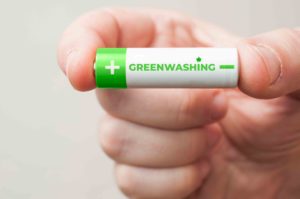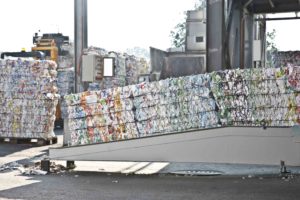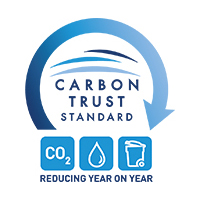 As the zero-waste movement continues to pick up momentum around the world, there are growing concerns surrounding greenwashing and unsubstantiated environmental claims. After all, anyone can declare zero-waste credentials, and modern marketing has a subtly persuasive way of making consumers believe any given product or company is eco-friendly when it is, in fact, not.
As the zero-waste movement continues to pick up momentum around the world, there are growing concerns surrounding greenwashing and unsubstantiated environmental claims. After all, anyone can declare zero-waste credentials, and modern marketing has a subtly persuasive way of making consumers believe any given product or company is eco-friendly when it is, in fact, not.
Transparency is the answer to these issues, and zero-waste certification has a big part to play in delivering the kind of open and honest business practices consumers want and need. Additionally, standardized zero-waste credentials can help companies work towards common goals, delivering best-practice frameworks that can be replicated across all types of organizations.

Source: zerowaste.com
Why Become Zero-Waste Certified?
Certifications show your business or organization’s commitment to zero waste. They are a way to provide third-party verification of zero waste achievements, which can be useful when appealing to consumers or investors, as well as motivating internal teams to stay on board with and even lead zero waste initiatives throughout your company.
Additionally, certification programs can also help a business or organization progress further in achieving its zero waste goals. Most schemes provide a framework or guidelines to work within, and some offer training or advisory services that make it easier to successfully adopt operations. Having a third-party audit can also provide helpful insights on waste reduction and management that your organization may not have considered.
The primary question asked is, which certification is best? Two factors come into play here: where you’re located and what your goals are. Some certifications are only available in certain regions or may be more widely recognized in some places than others. Many programs also have different standards for verification—primarily a question of whether waste-to-energy incineration is acceptable—or may offer different levels of support.
TRUE Certification
One of the most popular and widely recognized systems in North America, Total Resource Use and Efficiency (TRUE) Certification is a program for businesses, organizations, and communities that focuses on optimizing resource management. This means that TRUE Certification targets not only on minimizing waste, but also maximizing the potential benefits by seeking ways to turn waste into additional revenue and operational cost savings.

Source: true.gbci.org/
TRUE Certification requires that a business or organization achieves at least 90% diversion of non-hazardous solid waste from landfill, incineration, and the environment. The program works on a point-based rating system with a comprehensive set of categories, including closed-loop system design and zero-waste purchasing. There are four possible certification levels: certified, silver, gold, and platinum. Their system is based on the Zero Waste International Alliance (ZWIA) definition of zero waste, the strictest definition of the term in usage today.
Certification is managed by Green Business Certification Inc. (GBCI), which also oversees the LEED Certification program on behalf of the U.S. Green Building Council. For the TRUE program, GBCI not only offers guidance and consulting on waste management strategies, but also provides special training for members of businesses and organizations so that they can better lead internal zero-waste efforts.
Although primarily based in the US, TRUE Certification is available to organizations around the world, and there have already been a number of businesses certified in locations like Canada, Brazil, and Belgium.
 ZWIA Zero Waste Business Certification
ZWIA Zero Waste Business Certification
ZWIA itself has both a Zero Waste Business Certification and a Zero Waste Community Certification system. In line with the Zero Waste Community Principles, ZWIA takes a rigorous approach towards zero waste. For the business certification, they stipulate that candidates must achieve a zero-waste to landfill, incineration, and environment rate of 90% or higher, yet go a step further with the requirement that candidates must commit in writing to raising that rate by 1% over baseline every year, striving towards 100% of waste being diverted from landfill and incineration within 10 years.
This ambitious and laudable goal is made achievable through the support of ZWIA national affiliates, which provide training and resources for businesses and communities working towards zero waste. Unfortunately, up till now this certification has yet to go truly global, and is currently available through national affiliates in the US, Canada, and Brazil.

Source: carbontrust.com
Carbon Trust Zero Waste to Landfill Certification
Based in the UK and operating worldwide, Carbon Trust provides consulting for everything from supply chain sustainability to ESG reporting. They also have a number of certification systems, the most prominent of which is the Carbon Trust Standard. Under this standard falls the Carbon Trust Zero Waste to Landfill Certification, an advisory and verification system for businesses and other organizations looking to minimize their waste footprint.
As is indicated by the name, this certification requires diversion from landfill but does allow for waste-to-energy with no specific limit. Instead, the program encourages continuous improvement in waste management, moving away from incineration and up the waste hierarchy towards reducing and reusing.
Along with actual verification, Carbon Trust has a pool of experts around the world that provide businesses and organizations with guidance throughout the entire process, from measuring and analyzing waste to setting targets and implementing an action plan. It has an impressive portfolio of businesses and organizations it has worked with, including the Mexico City government, Barclays, and Siemens.
Underwriters Laboratory Landfill Waste Diversion Validation
Underwriters Laboratory (UL) is known for its safety certifications and has a distinctive logo that you may have seen on power tools or work uniforms. They also offer a number of certification programs, including Landfill Waste Diversion Validation for businesses and organizations striving to achieve zero waste. This program has three designations based on how much waste is diverted from both landfill and waste-to-energy: Silver for 90-94%, Gold for 95-99%, and Platinum for 100%.
 To help businesses on their journey, UL can provide advisory support by conducting assessments and helping develop waste reduction and management processes. They also offer webinars on waste-related topics like zero waste to landfill and closed-loop systems.
To help businesses on their journey, UL can provide advisory support by conducting assessments and helping develop waste reduction and management processes. They also offer webinars on waste-related topics like zero waste to landfill and closed-loop systems.
UL is particularly well recognized around the world in the manufacturing industry, but businesses in other spheres are also calling on the company’s expertise to validate their waste diversion initiatives. Most notably, supermarket chain Aldi has achieved Platinum certification for its three distribution centers in Finland.
There are other systems in use around the world that do provide certification for waste diversion, but their standards are somewhat debatable from a true zero waste perspective: they often allow for a large amount of waste-to-energy incineration or even have certification logos that could mislead the public into thinking a business or organization has succeeded in going zero waste when they haven’t. Ultimately, when looking for a certification, it’s vital to do your research and make sure the certification company or organization’s zero waste goals align with your own.
For more information on how your business or organization can transition to zero waste, subscribe to zerowaste.com. Alternatively, speak with one of our TRUE Advisors to get insight into going zero waste and see if TRUE Certification is right for you.

